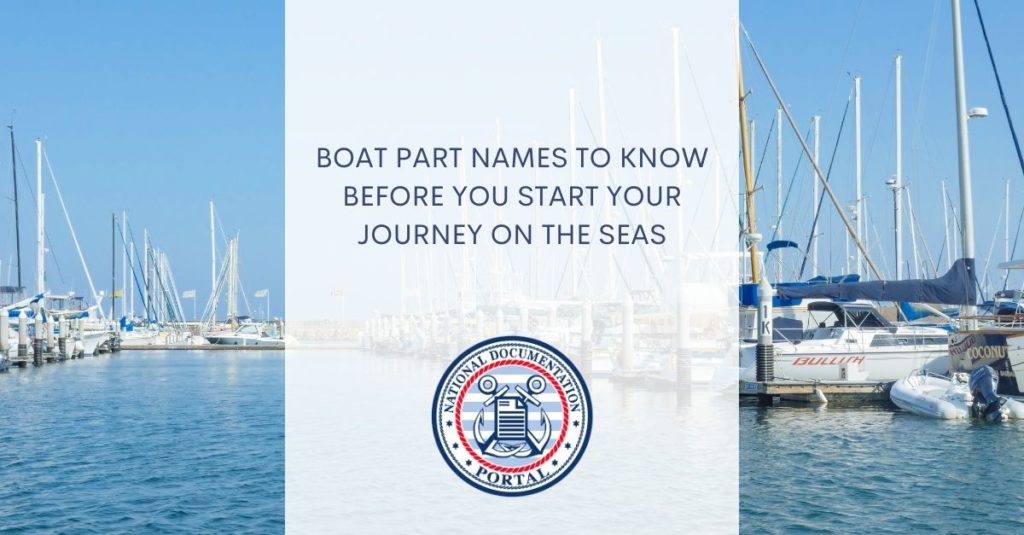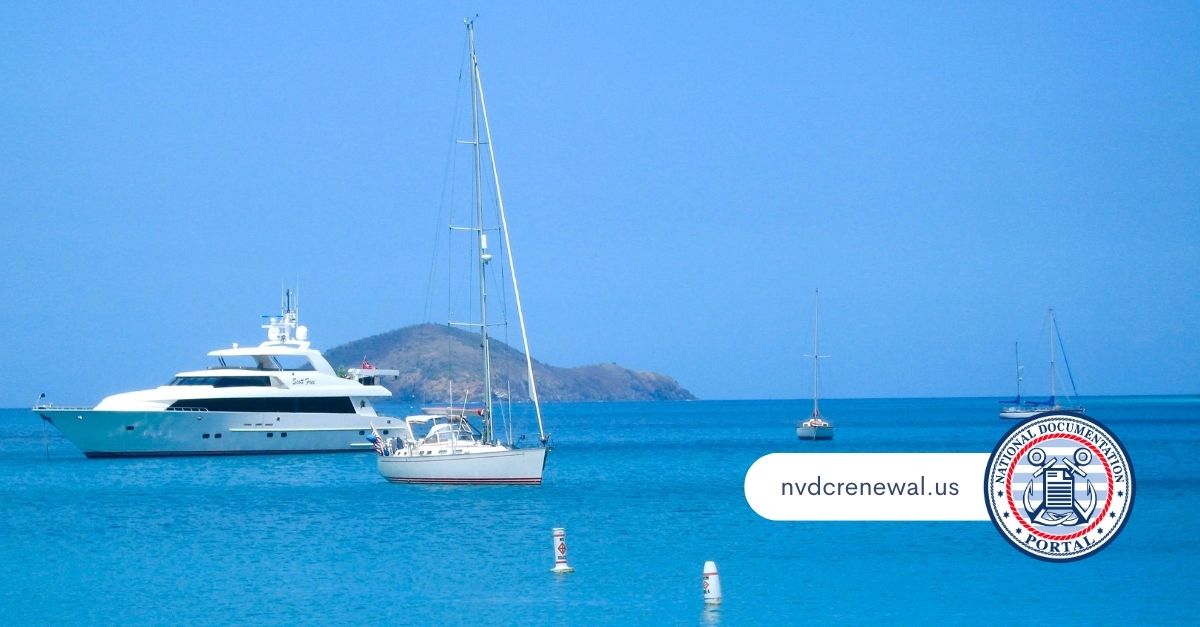Has it been a minute since you learned basic seamanship? Do you find yourself on a vessel every now and then wondering what all of those parts are called? Knowing what certain pieces are named and their purpose for being on board can come in very handy when dealing with repair projects or even more challenging situations while out at sea. Our National Documentation Portal was designed to help vessel owners with documentation, yes, but we also want it to serve as a kind of resource of maritime knowledge, with helpful information for vessel owners of different levels of experience. Below, we’ll cover common and less-known boat part names as well as why vessel owners should become more familiar with them.
The Basics
One key component (depending on your vessel) is the propulsion system, which provides the power to move through the water. Another important aspect is the anchoring system, which keeps the boat stationary when needed. The hull and deck are also crucial, providing not only structure but also stability and safety. Finally, the electrical system is essential for powering everything from lights to navigation equipment, ensuring a comfortable and secure trip on the water.
Understand Your Motor
If your vessel has a motor, then that motor can seem like a complicated piece of machinery, but understanding its individual components can make it much less intimidating. One part to know: the outdrive. This is responsible for transmitting power from the motor to the propeller. Another important component is the fuel tank, which stores and delivers fuel to the engine. And of course, the starter motor is what gets the motor up and running in the first place.
Important Parts Below the Surface
When it comes to boating, there’s a lot more than meets the eye. Sure, the sun is shining, the wind is in your hair, and the water is glistening, but what lies beneath the surface can make all the difference in your seafaring experience. Take, for example, the water pump and hoses. Without a properly functioning pump, your engine could overheat and leave you stranded in the middle of the water. Or consider the importance of a good bilge pump – if water starts to accumulate, you need to be able to remove it quickly and efficiently. Speaking of efficient moving, choosing the right propeller can impact everything from speed and fuel efficiency to noise level and maneuverability.
Once You Have the Vessel You Want
Here at the Vessel Registrar Center, we help with parts of your boat that may not make the boat “go,” exactly, but they are parts that you aren’t going to want to leave port without. Specifically, we offer easier access to federal documentation. If your vessel is eligible, you can find all of the forms that you’ll need to not just apply for documentation here but to maintain it for years to come as well. Safe travels on the water!


